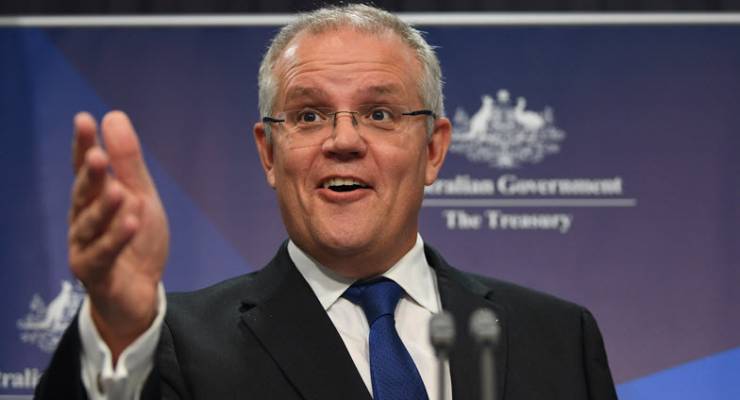
A fantasy budget can’t inhabit a totally fantasy world. You can’t assume infinite money or compliant citizens who remain inert while you utterly uproot the fabric of Australian society. A good fantasy budget, like any good story, is a tale of heroism in a world recognisably similar to our own.
This implies also that you can’t imagine away the delicate internal balance of the Coalition. Even in a fantasy world, Tony Abbott lurks — emasculated and alone, Gollum-like perhaps — but far from powerless. The federal budget is made within a set of constraints, balancing financial, national and party needs more delicate than we perceive.
Here’s what Malcolm Turnbull and Scott Morrison could have dreamed up in a modestly fantastic universe where they are only slightly more swashbuckling.
Three easy wins
As tempting as it may be, we shan’t demand that the Coalition hike taxes on the top income bracket — we’re not asking the reader to suspend disbelief quite that much.
Instead, a plausible way to sink a bit more money into the government coffers would simply be to keep the Medicare levy the government promised at the last budget.
Announcing the 0.5% tweak to the tax, ScoMo made a genuinely nice speech about his brother-in-law, who suffers from multiple sclerosis. Now, less than a year later, the Medicare levy increase has been scrapped.
That reversal costs the budget $8 billion. That’s massive, and all for a decision where they had already taken the political heat (to the extent that there was any heat — we love Medicare, and the levy kicks in only for higher income earners).
Whether you intend to parade around your prompt return to surplus or your generous pre-election hand-outs, that $8 billion would come in pretty handy.
While we’re on easy wins. I’d also suggest the Coalition trim its indulgent corporate tax cut. Instead of cutting corporate taxes from 30 to 25, why not find a middle ground? Twenty-eight per cent sounds fine. You’ll still be making Labor cross, and giving your corporate mates the best deal they can find in the whole political spectrum. There’s no need to go so far.
A third easy win — announce personal income tax cuts if you must, (it’s an election budget, we all get it) but have them become law a fair bit later. In a world of bracket creep, every year of delay is worth billions.
Don’t forget the rats and mice
Net corporate welfare has risen from $9.7 to $13.4 billion in the last year, according to the Productivity Commission, and cutting it is recommended by the libertarian Institute of Public Affairs. This is core conservative territory.
A huge recipient of corporate welfare is small business. Small business is popular as motherhood and apple pie, but when you look more closely, it’s not really any better than big business, and sometimes worse. They offer worse benefits, comply with looser laws, are less efficient and go broke more often. And still the government hands over $4.7 billion each year in help to small businesses. Much of which is in the form of tax concessions.
Disclosure: as a freelance journo with an ABN I’ve benefited from these small business tax concessions. But, additional disclosure: I think they’re dumb, inefficient and populist.
I’d also very much like to see the government crack down on tax avoidance at the corporate level, but from what I understand that needs to be a global effort. It remains hard for one country to prevent a company from profit shifting.
Lastly — and this idea is perhaps rather more fantastic — I shall also steal the carbon tax idea from the fantasy budget written by the experts from Per Capita. It simply pays money raised, back to all citizens equally, which is not only a sort of proto-universal basic income, but also a terrific way to make a very important tax more popular.








Tax cuts are such low hanging fruit.
Look how easy they are to reverse when times call for more revenue (rather than cutting services to the most needy – such as education and health, in all their forms) – the number of times this government did just that to reverse the tax cuts they brought in under Howard-Costello, sacrificing future revenue/services for electoral popularity/votes?
I pity people who have to write utterly pointless stuff like this.
Even if this lot could be trusted to shoot straight(ly) enough to only blow off one foot, there remains the insurmountable problem that what the various pressure groups want is, necessarily – not a bug but a feature – and by design, inimical to the common good.
We, the taxpayers, are the product.
We could also cancel the useless war machines, stop locking up innocent pple, raise the dole and pensions, treat the sick, poor and students with respect, put billions into Aboriginal benefits but it’s a long time since any government of any stripe has bothered with the real business of government.
Easy win #1. Actually convince us you can screw a genuine 25% in tax, on true profits, from those global parasites and, hey, you are on a winner. Sorry, just dreaming.